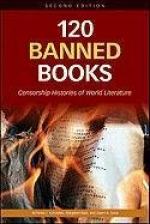|
This section contains 6,233 words (approx. 21 pages at 300 words per page) |

|
SOURCE: Coetzee, J. M. “Zbigniew Herbert and the Figure of the Censor.” In Giving Offense: Essays on Censorship, pp. 147-62. Chicago: University of Chicago Press, 1996.
In the following essay, Coetzee considers how censorship by the Communist Party has informed and shaped the poetry of Polish writer Zbigniew Herbert.
Under pressure at the 1934 Soviet Writers' Congress to embrace socialist realism, Isaac Babel announced that he would prefer to practice “the genre of silence.”1 As a form of resistance to ideological prescription, the genre of silence was obdurately followed by a handful of Russia's leading writers. Widely interpreted as a refusal to accommodate their art to the demands of the state, their silence had an enduring moral and even political impact.
Until Stalin's death in 1953, and for a few years thereafter, writers in the Soviet Union and its satellite states had what Stanislaw Baranczak calls a “complex system of terrors...
|
This section contains 6,233 words (approx. 21 pages at 300 words per page) |

|


